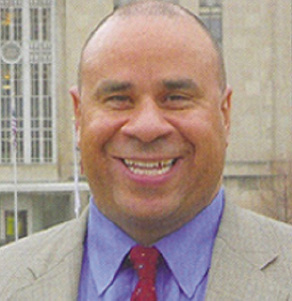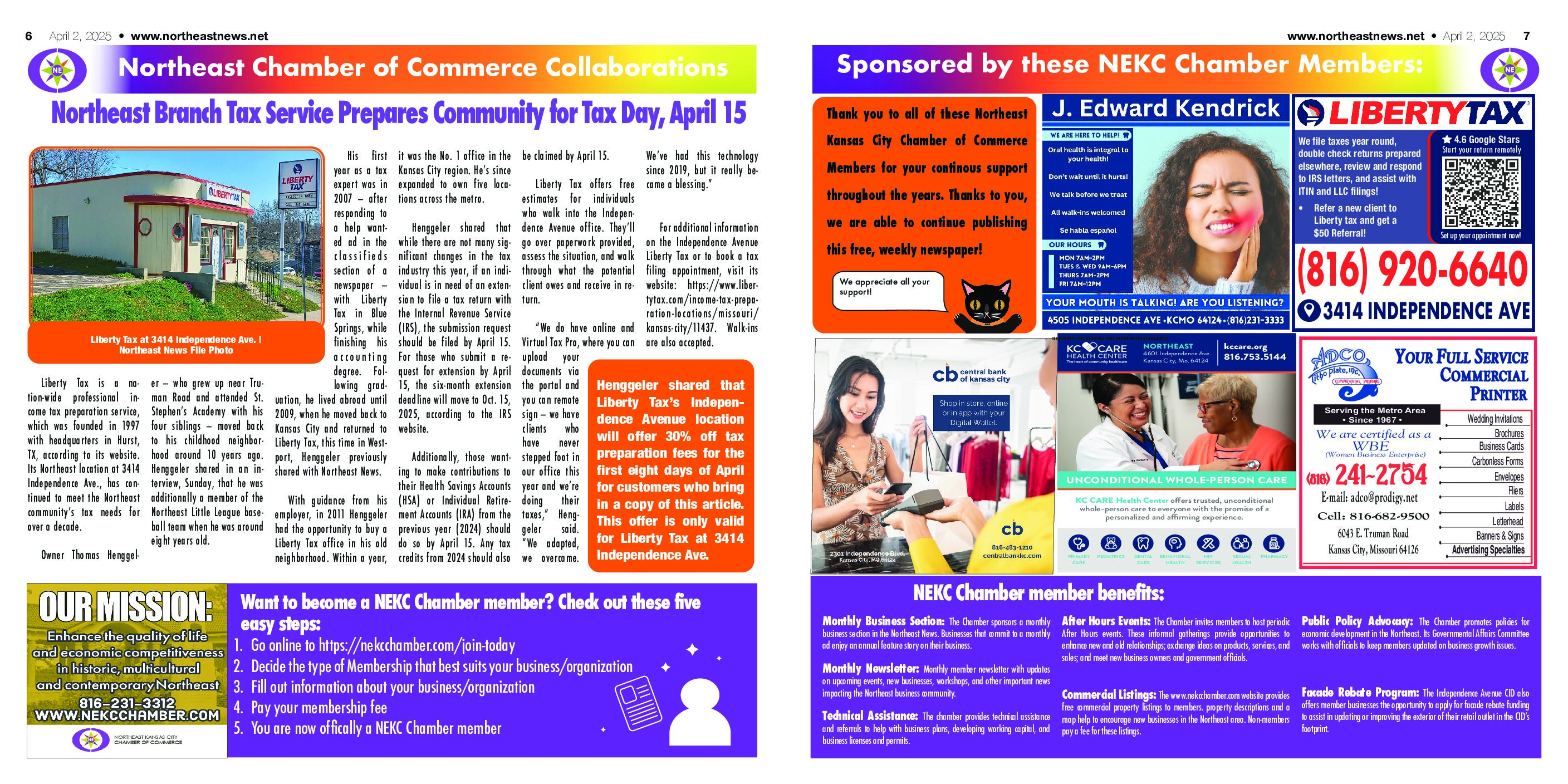
By Leslie Collins
Northeast News
Feb. 16, 2011
Negative forces are stacking up against Michael Fletcher, candidate for the 3rd District City Council seat.
Incumbent Sharon Sanders Brooks has alleged Fletcher is not a Kansas City resident, a requirement to run, and now, Kansas City’s Ethics Commission is questioning why he ignored campaign contribution limits.
On Feb. 17, Sanders Brooks filed a lawsuit in the Jackson County Judicial Circuit Court against Fletcher, alleging he’s a resident of Long Beach, Calif., based on recent court documents filed in California and Missouri. She requested Fletcher be removed from the election ballot.
Fletcher said he lives in Kansas City and filed his candidacy under 2360 E. 12th St. Unit D, Kansas City, Mo.
A hearing is scheduled for 2 p.m. Thursday, Feb. 17.
Ethics commission questions contributions
During a Feb. 9 Kansas City Ethics Commission meeting, commissioners addressed how Fletcher violated City Ordinance 2-53, which sets campaign contribution limits for municipal elections.
Candidates for district council seats are allowed to raise up to $1,500 per contributor for primary and general elections.
The ordinance was adopted on March 7, 2010.
However, on July 7, 2010, Fletcher received two contributions which surpassed the legal amount. Contributors included Geoffrey C. Garth of Long Beach, Calif., $5,000, and Mike T. Yonke of Kansas City, Mo., $2,000.
Commissioners e-mailed Fletcher on Jan. 25, 2011, detailing the ordinance and requested an explanation.
Fletcher replied via e-mail Feb. 2.
“The answers to our questions were not addressed,” commissioner Lajuana Counts said of Fletcher’s e-mail.
Fletcher’s campaign treasurer, Charles Menifee, attended the meeting and defended Fletcher.
“When we started this campaign just about a year ago in February, I contacted the Missouri Ethics Commission and asked them about campaign contribution limits, and they informed me there were none,” Menifee said. “They directed me to the (Kansas City) city clerk’s office, who said there were none.
“Up until a month ago, I wasn’t aware of campaign contribution limits…
“At the time the contributions came in, I did not knowingly accept them as being contrary to the limit.”
“Our inquiry was about the amounts,” Counts said. “And we still haven’t received a response other than you said you weren’t aware of the new ordinance.”
Commissioner Jalilah Otto agreed.
“What is troublesome for me is that our inquiry wasn’t even addressed at all,” Otto said. “It (request) simply says please provide me with any information or documentation that is relative to whether Ordinance 2-53 was or was not violated.
“I think that question was pretty simple.”
“My response is this,” Menifee said, “I was not aware of the $1,500 contribution limit. Michael Fletcher’s position is written out in the e-mail.”
Further information, he said, would need to be requested through Fletcher’s attorney, Michael Yonke.
Fletcher’s e-mail response
In his e-mail, Fletcher said there is not a Missouri state law that dictates campaign contribution limits.
“Therefore, if the City has imposed a limit, that limit does not comport with Missouri State law wherein a candidate’s First Amendment rights demand that he or she be able to solicit or receive contributions without limitation,” Fletcher’s e-mail read. “Therefore, there exists in Missouri a conflict between the City Charter and Missouri law, which will result in the city’s law being preempted by the state law.”
Northeast News contacted City Attorney Galen Beaufort, who said Fletcher misinterpreted the law.
“Fletcher is correct that Missouri’s Campaign Finance Disclosure Law does not include financial limitations for any offices,” Beaufort said. “Members of our staff researched the issues and came to the opposite conclusion Mr. Fletcher has come to.
“Kansas City, Mo., is a Missouri Constitutional Charter City. A Constitutional Charter City has all the legislative powers that the Missouri General Assembly would have, except that the city cannot expressly permit something that the Missouri General Assembly has expressly prohibited.”
Therefore, the city can legally pass an ordinance on campaign contribution limits, even though the State of Missouri has chosen not to, Beaufort said.
Also in his e-mail, Fletcher cited how mayoral candidate Mike Burke received a $13,000 contribution and how Sanders Brooks received a $2,500 contribution, which violated the city ordinance.
Fletcher accused the commission of singling him out for “political purposes,” and further stated, “Your office has not chosen to pursue that (Sanders Brooks) contribution.”
Northeast News researched the campaign contributions on the Missouri Ethics Commission website and did not find a $13,000 contribution for Burke. However, it did find a $2,500 contribution to Sanders Brooks from a Maryland entity, but that was received on Jan. 1, 2010, before the city ordinance went into effect.
“I agree that maybe we should go one more informal route and give him (Fletcher) a chance to explain his position,” commissioner Kevin Schorql said. “And if that doesn’t work, we’ll take it to the next level (formal investigation).”
After further discussion, the Ethics Commission voted to have Kansas City Internal Auditor Roy Greenway contact Fletcher’s attorney about the Ordinance 2-53 violation.

















